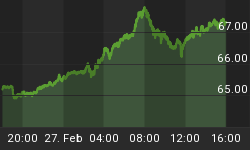Everyone knows that Japan deeply is in debt and one way or another is going to suffer for it. But for those who thought the story couldn't get any worse, well, the creativity of the financial repressors never ceases to amaze.
It turns out that, in addition to a government that borrows way too much money at unnaturally low rates -- guaranteeing that rates can never be allowed to rise because the cost of paying even 2% interest would bankrupt the country -- Japan's homeowners have discovered the joys of adjustable-rate mortgages:
Homebuyers in Japan seen at risk amid floating-rate loan rush
Japanese homebuyers are piling into floating-rate mortgages, stirring debate over whether they are too complacent as Bank of Japan stimulus revives inflation.The proportion of home loans with adjustable rates climbed to 42.8 percent of Japan's new lending in February, the highest since December, according to the latest data from Japan Housing Finance Agency. The lowest variable mortgage rate at Japan's three biggest banks was at 0.775 percent, compared with a 10-year fixed rate of 1.3 percent.
Outstanding housing loans to individuals expanded to ¥113.7 trillion ($1.1 trillion), the most since at least 1974 in June as BOJ Gov. Haruhiko Kuroda's monthly sovereign bond buying aimed at ending deflation made it cheaper than ever to finance a home purchase. Borrowers like 30-year-old retail employee Eriko Brown, who chose a flexible-rate mortgage to buy a house this year, are betting rates won't rise significantly, even as global policymakers fret over how to exit from easing.
"The market has become complacent about risks as monetary easing continues," said Satoshi Okumoto, chief executive officer and president in Tokyo at Fukoku Capital Management Inc., which oversees the equivalent of $18 billion. "Homeowners aren't worried about the risk of yields rising even if they borrow in floating-rate mortgages. They could be caught off guard."
Some thoughts
The point of this series (see parts 1, 2, and 3) is that artificially-low interest rates, also known as financial repression, lead to disaster by inducing people to borrow too much money via either short-term or variable-rate loans. These loans become cripplingly expensive if interest rates return to normal levels, so beyond a certain point a "variable-rate society" can never go back to normal.
Japan was already the poster child for this kind of excess, and now, well, one has to wonder if this new twist even matters. If an interest rate rise to even US and European levels of 2%-3% bankrupts the government, what difference will it make it if also impoverishes a few million mortgage borrowers?
It's possible that the various insanities now rampant in the world (US subprime auto and student loans, expanding bank derivatives books, new Middle East interventions, Chinese ghost cities and shadow banks) are simply icing on a cake that has already been baked. In other words, we went bankrupt in 2000 and have since been rolling a set of loaded dice by borrowing on ever-less-favorable, mostly variable-rate terms like a family borrowing from a loan shark to avoid losing their house. There's no chance of keeping the house and the loan shark won't be nice at all when he comes for it, but at least for another couple of months the neighbors won't have to see a moving van out front.















